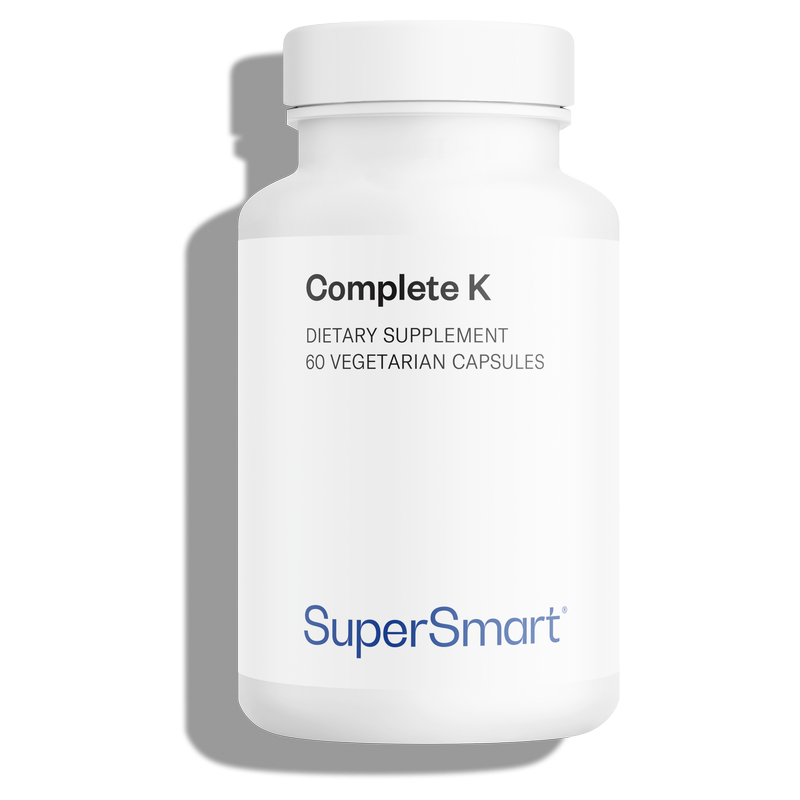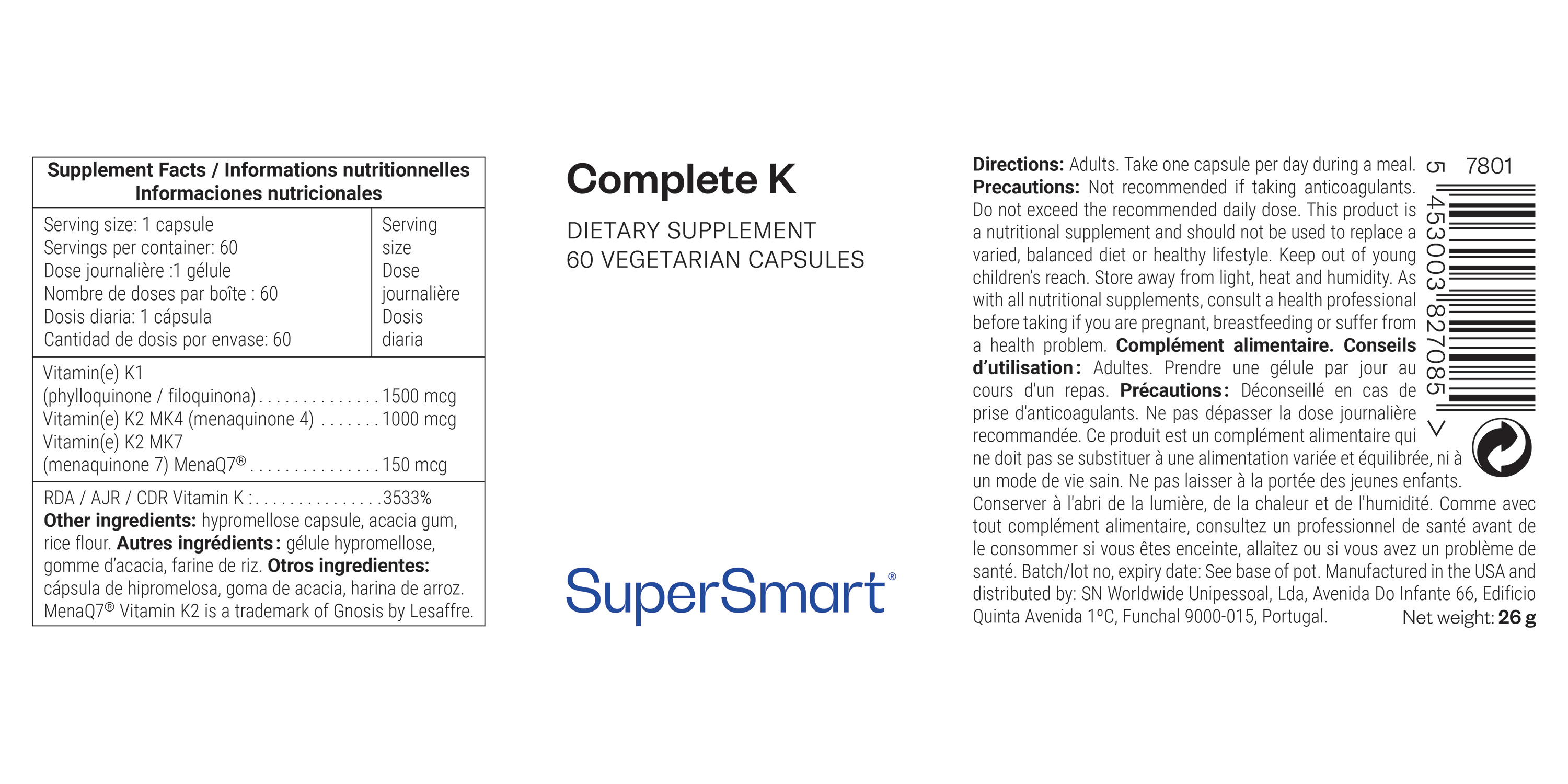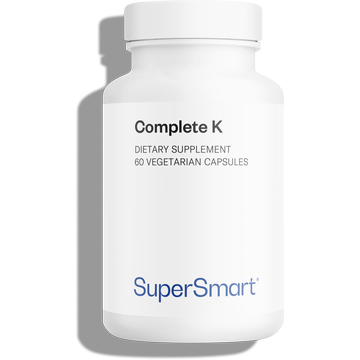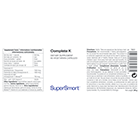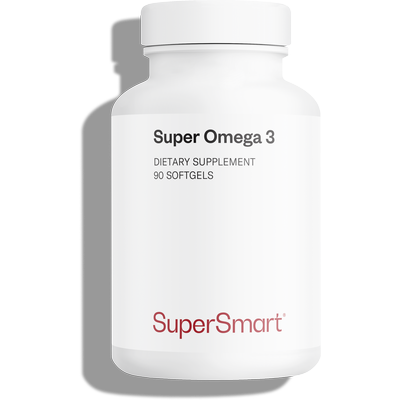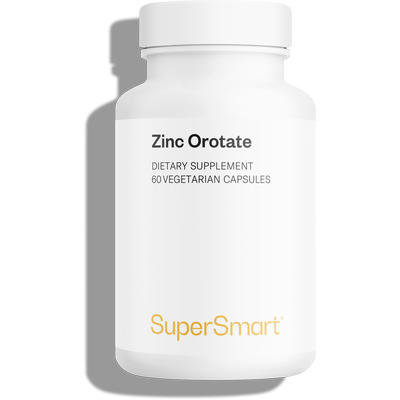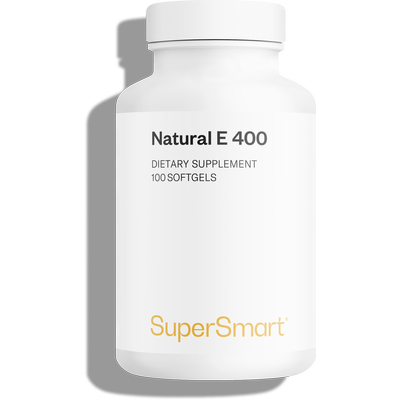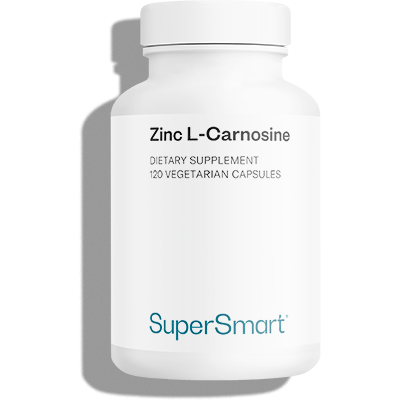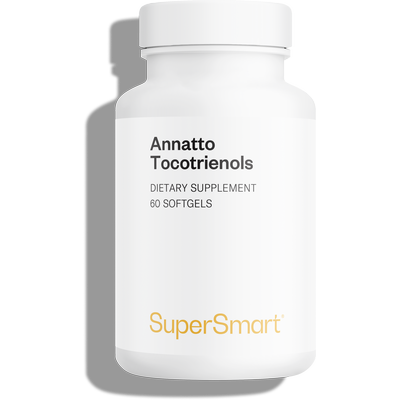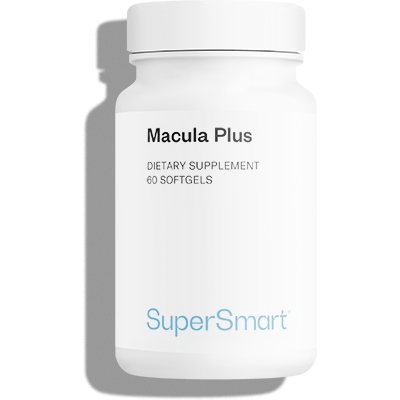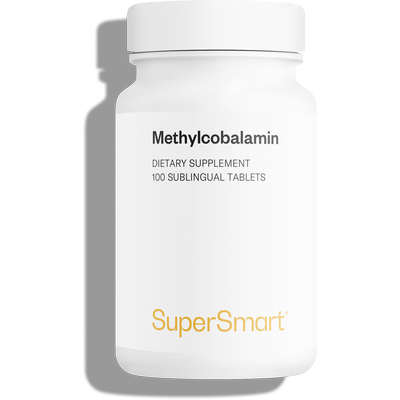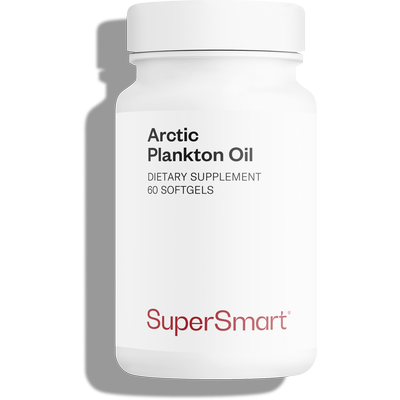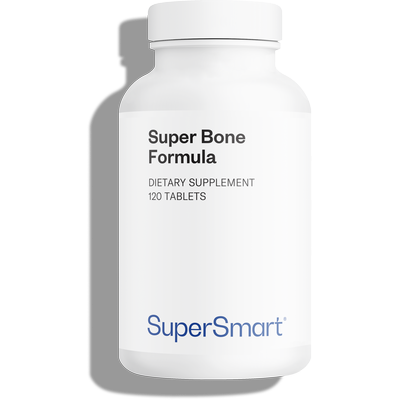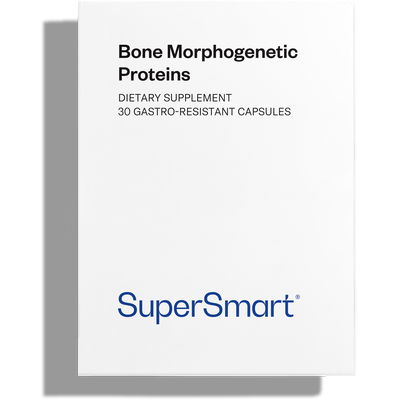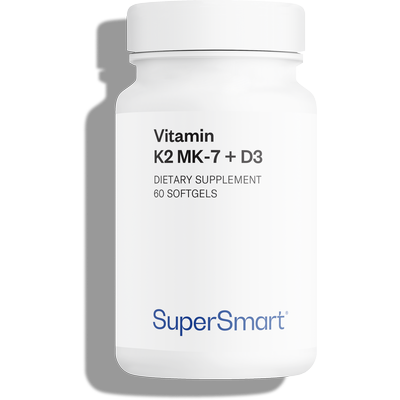Complete your selection
Complete K is a supplement containing vitamins K1, K2 MK-4 and K2 MK-7, for a complete and optimal delivery of vitamin K in vegetarian capsules, now available to buy at Supersmart.
To whom is a vitamin k supplement aimed at?
The term vitamin K covers various substances that play a part in activating certain coagulation factors (or ‘Koagulation’ in German). Having reached the lymphatic vessels, vitamin K is taken up by chylomicrons and accumulates in the liver where it participates in the synthesis of four coagulation factors, including factor II (prothrombin) and its conversion into thrombin.
Having said that, research by Dr Rhéaume-Bleue has revealed that 80% of Americans are deficient in vitamin K2, potentially leading to brain disorders, cancer, stroke, kidney stones or osteoporosis. Taking Complete K is therefore essential for those with:
- Risk of bleeding.
- Intestinal malabsorption (Crohn’s or coeliac disease, chronic diarrhoea…).
- The elderly.
- Osteoporosis, or more generally, women going through the menopause.
- Risk of cardiovascular disease and cancer.
Scientists at Maastricht University have even demonstrated that many healthy people are lacking in vitamin K and that supplementation may be beneficial for those aged over 40. However, it applies especially to:
- New-born and premature babies.
- Elderly individuals with intestinal malabsorption problems or osteoporosis.
- Pregnant women and breast-fed babies.
What benefits are associated with vitamin k2?
It is now known that vitamin K2 remains active for a long time in the body (up to 72 hours), at very low doses, while being ten times more bioavailable than vitamin K1. It also acts synergistically with a number of nutrients such as vitamin E and calcium. However, the biological role of vitamin K2 extends still further:
- It moves calcium into tissues where it needs to be – the bones and teeth. When activating synthesis of osteocalcin, a specific hormone of bone tissue produced by osteoblasts, it ensures mineralisation by capturing and redistributing calcium within the body to the bones and teeth.
- It therefore reduces osteoporosis-related bone fractures (particularly broken hips).
- Conversely, it removes calcium from parts of the body where it shouldn’t be, such as the arteries and soft tissues where it can cause hardening.
- By doing so, it protects such tissues from eventual calcification in the form of atherosclerosis and aortic calcification.
- And finally, it supports healthy functioning of the renal system by preventing calcium type kidney stones.
- A study published in the journal ‘Modern Rheumatology’ has also shown that vitamin K2 may improve symptoms of rheumatoid arthritis, while other research suggests it can help maintain normal ATP production in mitochondrial dysfunction such as that related to Parkinson’s disease.
Buy Complete K capsules to fight vitamin K deficiency and provide benefits for bone health.
What is in Complete K
Any questions?
Up until the last few years, it was thought there was only one form and one active family of vitamin K, represented by vitamin K1 (phytomenadione or phylloquinone). This is the form found primarily in plants and cruciferous green vegetables such as cabbage, parsley, spinach and lettuce. It is fat-soluble and heat-stable but sensitive to light and alkaline environments.
Other forms of vitamin K, essentially vitamin K2, which is divided into two forms – MK4 and MK-7, have recently been the subject of important studies which have highlighted new properties beyond the well-established role in blood clotting mechanism.
- The MK-4 raction of vitamin K2 is very similar to vitamin K1 which the body is capable of converting into MK-4. However, the latter has a biological half-life of barely an hour and is therefore not a good supplement to take alone.
- The MK-7 fraction, on the other hand, has a half-life of three days, ensuring stable blood concentrations and enabling low doses to be taken with no cumulative effects. Natto is one of the primary sources for extraction. According to the latest studies, MK-7 is proving to be one of the best preventive agents against chronic inflammation which, over the years, can silently damage tissues and contribute to the development of associated conditions such as obesity, cancer and cardiovascular disease (including stroke and heart attack). Indeed, studies have shown that it inhibits pro-inflammatory markers produced by monocytes.
Menaquinones (vitamin K2) are synthesised by bacteria in the intestinal tract, but they are unfortunately totally eliminated in faeces rather than distributed to vessels, bones and various tissues. K2 vitamins are also found in offal, meat, fermented products such as certain cheeses, and especially natto, a traditional Japanese food made from fermented soybeans, which is by far and away the richest source of vitamin K2 but is unfortunately not part of the Western daily diet.
There is also a synthetic form, vitamin K3 (menadione) which is rarely used since it interferes with the cells’ antioxidant defences and can cause oxidation of cell membranes. In babies, it can destroy red blood cells, leading to anaemia. Those wishing to supplement with vitamin K should, therefore, do so with both the K1 and K2 forms.
This product’s capsules are composed of HPMC (hydroxypropyl methylcellulose), a plant substance derived from cellulose. HPMC is widely used for medicines and dietary supplements. It contains no animal ingredients, is recognised as safe by health authorities and is considered more sustainable than synthetic alternatives.
december 27 2024
I recommend it
november 22 2020
DONNE SATISFACTION
march 24 2025
Ich wusste, dass ich Complete K benötige und nicht nur K. Das ist wichtig, wenn es wirklich der Gesundheit dienen soll.
march 10 2025
Creo que sea un buen producto, pero como no sé si mis huesos están mejor.. Confío en la calidad de la casa
february 25 2025
Tout a fait ce que je voulais
Need help?
You may also like

